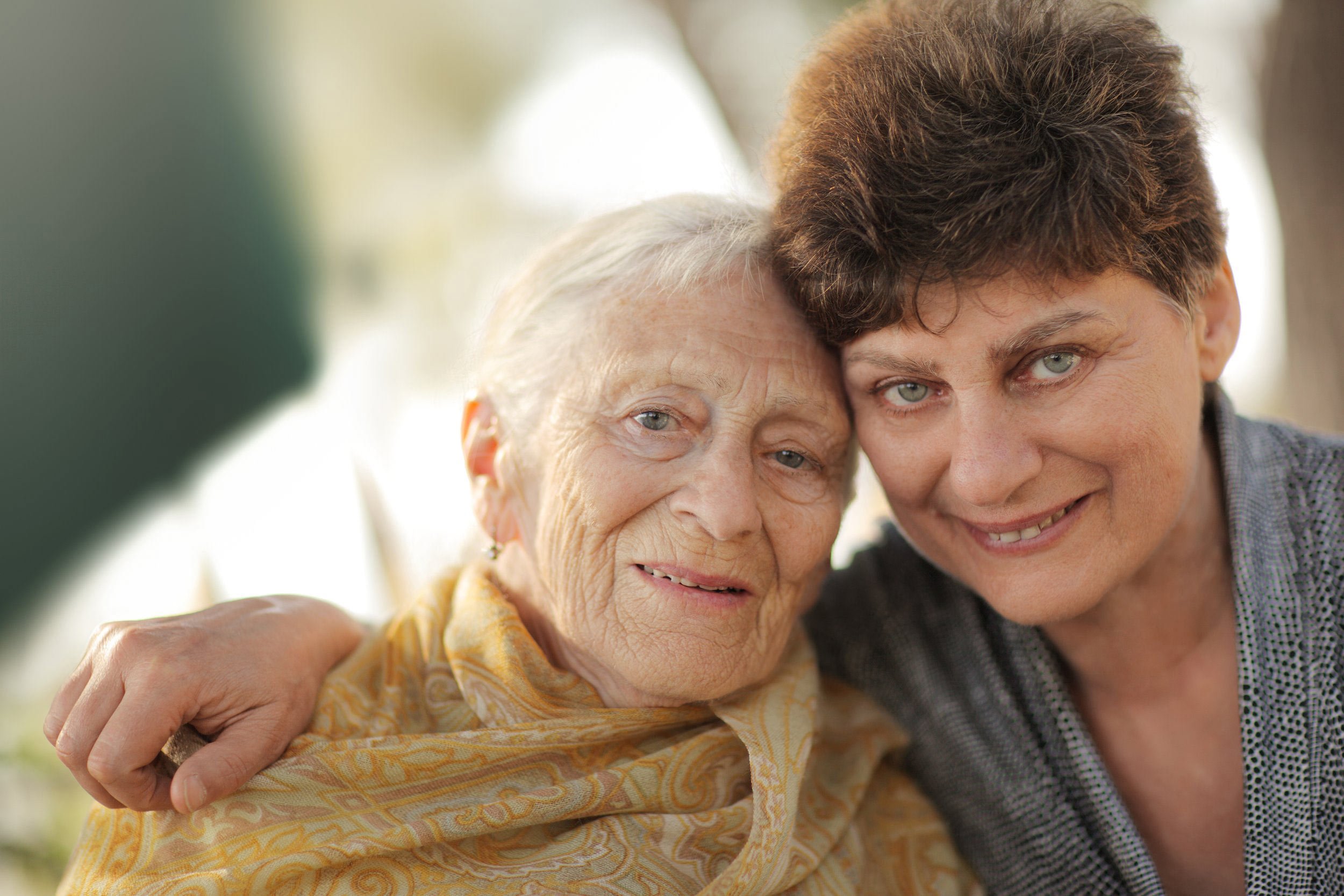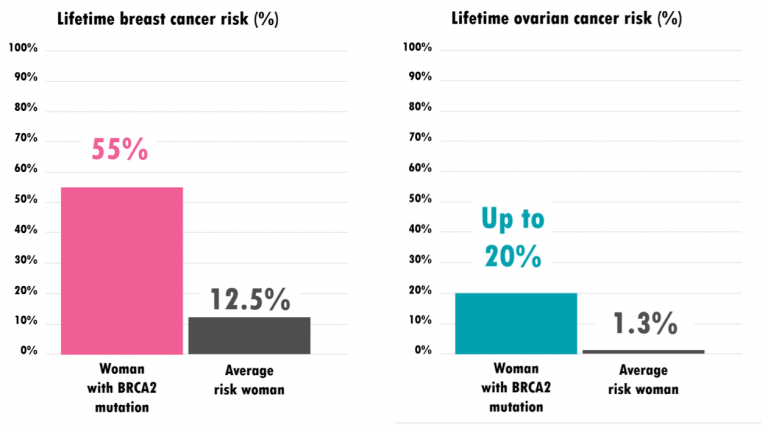
BRCA in Women
About 12.5% of women in the general population will develop breast cancer some time during their lifetimes, but for women who carry a mutation in the BRCA1 or BRCA2 genes, the risk of developing breast cancer as well as several other cancers is much higher. These cancers also can occur at a younger age on average, may be more aggressive, and in some cases, more resistant to treatment, than other cancers. If you do not know much about BRCA1 and BRCA2, you can check out the BRCA Basics page on this site for more information.*
This site focuses on BRCA gene mutations in the Ashkenazi Jewish population. About 90% of carriers in the Ashkenazi Jewish population carry one of the following three mutations, so so-called “founder mutations”: BRCA1 185delAG, BRCA1 5382insC, and BRCA2 6174delT. Below, The tables detail the risk profiles for BRCA1 and BRCA2 carriers.
Please note that these are statistics – it is impossible to predict who will develop cancer and who will not. Everyone’s risk of cancer varies depending on a wide variety of factors. For instance, in female BRCA carriers, the risk of breast cancer has been found to increase with the number of first-degree relatives with breast cancer (such as a parent or sibling) or second-degree relatives (such as a cousin) with breast cancer. This is why it is always important to discuss your personal family history of cancer with a genetic counselor, who can help you understand your risk and make appropriate decisions about how to manage it and prevent cancer. Studies suggest that knowing if you have a BRCA mutation or not improves breast cancer outcomes, such as early diagnosis and survival.
You can also learn more about BRCA and Jewish women through the Your Jewish Genes resource by Sharsheret.
*All statistics on this site have been reviewed and validated by medical professionals at BC Cancer.
BRCA 1
There are two primary BRCA1 genes found in the Ashkenazi Jewish population: BRCA1 185delAG is the most common BRCA1 mutation and BRCA1 5382insC is the less common BRCA1 mutation. Both are similar in terms of their cancer risks (reported below), but there is some evidence over limited data and older studies that BRCA1 185delAG carriers are at a lower risk of ovarian cancer than BRCA1 5382insC carriers. It is important to note that the risk is still considered significant and that all female carriers of BRCA genes are advised to consider options for preventing ovarian cancer, which is difficult to detect and often only diagnosed once it has already reached an advanced stage.*
Breast Cancer
The lifetime risk for a woman with a BRCA1 mutation is about 65% compared to 12.5% on average.
There is an increased lifetime risk of a second breast cancer (not reappearance of first tumor). The lifetime risk is about 40% for BRCA1.
Ovarian Cancer
The lifetime risk of ovarian cancer for a BRCA1 carrier is about 44% compared with 1.3% on average.
Other Cancers
There is a slightly increased risk for a rare form of aggressive uterine cancer, the estimated risk (to age 70) is less than 5%.
The lifetime risk of pancreatic cancer is about 2.6% compared to 1% for an average risk person.
Some research suggests that BRCA1 mutations BRCA1 carriers are at 4 times the lifetime risk of colorectal cancer. They may also be at increased risk for all cancers, such as laryngeal and stomach cancers, and melanoma (average 2.6 times the risk). However, because these studies are not conclusive, genetics experts often look at a person’s family history of cancer to help people with BRCA1 mutations understand their risk.
*All statistics on this site have been reviewed and validated by medical professionals at BC Cancer.
BRCA 2
There is one primary BRCA2 gene found in the Ashkenazi Jewish population: BRCA2 6174delT. Half of all BRCA carriers in the Ashkenazi Jewish population will carry this mutation.*
Breast Cancer
The lifetime risk for a woman with a BRCA2 mutation is about 55% compared to 12.5% on average.
There is an increased lifetime risk of a second breast cancer (not reappearance of first tumor).
Ovarian Cancer
The lifetime risk of ovarian cancer for a BRCA2 carrier is about 17% compared with 1.3% on average.
Other Cancers
The lifetime risk of pancreatic cancer is about 6% compared to 1% for an average risk person.
Research on how mutations in the BRCA2 gene affect cancer risk is ongoing. Some research suggests that carriers of BRCA2 mutations are at 12 times the lifetime risk of lymphoma. BRCA2 may also increase risk for all cancers, such as laryngeal and stomach cancers and melanoma (average 1.8 times the risk). However, because these studies are not conclusive, genetics experts often look at a person’s family history of cancer to help people with BRCA2 mutations understand their risk for additional cancers.
*All statistics on this site have been reviewed and validated by medical professionals at BC Cancer.




